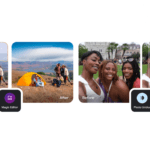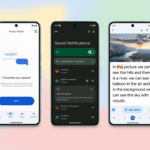The app economy is flourishing. According to recent research by Access Partnership, 255 billion apps were downloaded in 2022 alone, and the average smartphone user has about 90 apps installed. Android and Google Play play a significant role in driving this app growth by providing choice, access, and security to both businesses and consumers.
Here are the key insights from the report by Access Partnership:
Benefits of Diverse Choices
As an open-source mobile operating system available for free adoption, Android enables device manufacturers to innovate freely and has saved them up to an estimated $33 billion in development and operating costs so far. By eliminating the need for manufacturers to create their operating systems, resources can be allocated to developing innovative software and hardware features, resulting in a wide array of devices. This has led to the availability of over 24,000 device models across various categories such as smartphones, wearables, and TVs, catering to different price points.
On Android, app developers are not constrained to a single app store, promoting developer flexibility. In 2022, there were over 15 app stores on Android through which businesses could distribute apps. Developers also have the option to launch their own app store or offer apps directly through their websites. For instance, a recent survey indicated that 46% of European developers distribute through multiple app stores on Android, expanding their audience reach. This distribution flexibility also benefits consumers, with 80% of Android devices having at least one app installed from sources other than Google Play.
Inclusive Access
The affordability of Android devices has facilitated internet access for millions, particularly in developing markets, thereby bridging the digital divide. The report highlights that nearly two-thirds of smartphones shipped in 2022 in a sample of developing countries were Android devices priced under $200. This connectivity provides crucial access to information, services, and social connections. In Brazil alone, it is estimated that over 78 million people primarily accessed the internet through Android smartphones in 2022.
Google Play serves as a global platform for app developers, especially small businesses, to reach a broader audience. Earnings for small developers on Google Play grew by 101% from 2017 to 2022, and during the same period, the number of new developer accounts on Google Play increased by 52%. With access to over 190 markets and 2.5 billion users, Google Play enables app creators to target large customer bases beyond their local markets. The report reveals that in certain markets, up to 79% of developer revenue generated through Google Play in 2022 came from international users.
Emphasis on Safety
Android and Google Play make significant investments in safeguarding users and businesses, crucial in the constantly evolving cyber threat landscape. Android devices come equipped with built-in protections against malware, phishing, and data privacy risks. Google Play Protect, Android’s anti-malware solution, actively scans over 125 billion apps daily for malicious or harmful content, regardless of the app’s source.
Google Play’s policies and technologies have established a secure app marketplace to shield users and businesses from online threats. In 2022, Google Play blocked or disabled over 300 million spam accounts, prevented $2 billion in fraudulent transactions, and managed over 1.5 million support cases through its billing system. These security measures foster user trust. In a survey conducted among Android smartphone users in India, 91% expressed trust in Google Play to ensure the safety of apps, influencing their decision to download from Google Play. Google Play’s proactive approach to security instills confidence in users and businesses, enabling them to engage in the app economy securely.









